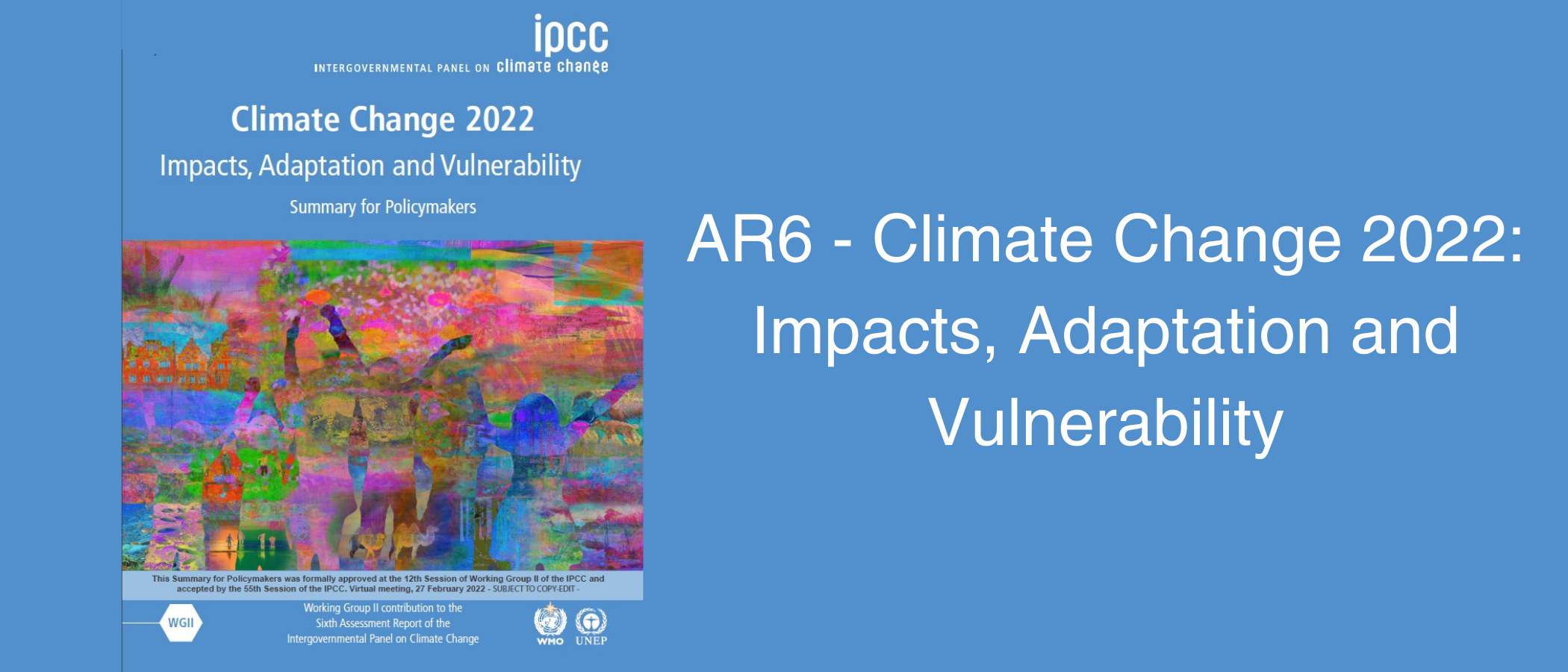All about IPCC latest report.
~Preet

The Intergovernmental Panel on Climate Change (IPCC) just issued the second instalment of its sixth assessment report. The second section of the paper discusses the effects of climate change, risks and vulnerabilities, and adaptation strategies. In 2021, the first half of this report, on the physical science of climate change. It has previously cautioned that 1.5 degrees Celsius of warming was likely to be attained by 2040. The third and last section of the report, which will investigate emission-cutting options, is scheduled to be released in April 2022.
Noting that over 3.5 billion people, or more than 45 percent of the world population, live in climate-vulnerable areas. According to the research, India is one of the most susceptible areas, with multiple regions and major cities at high risk of climate calamities such as flooding, sea-level rise, and heat waves. Mumbai, for example, is at high risk of sea-level rise and flooding, but Ahmedabad is at high risk of heat waves. The most recent assessment warns that many disasters caused by climate change are expected to occur in various regions of the planet during the next two decades. Various climate hazards will occur concurrently, as will multiple climatic and non-climatic risks, resulting in compounded total risk and risks cascading across sectors and geographies.
Even if sufficient efforts are made to limit the global temperature rise to 1.5 degrees Celsius over pre-industrial levels. Even momentarily surpassing this warming threshold will have significant consequences, some of which will be irreversible. The extent and velocity of climate change, as well as the dangers connected with it, are heavily reliant on short-term mitigation and adaptation activities. The projected negative effects, as well as the associated losses and costs, increase with each degree of global warming. There is a particular emphasis on the relationships between the linked systems climate, ecosystems (including biodiversity), and human society.
The vulnerability of ecosystems and humans to climate change varies greatly between and within areas. These are driven by interlocking socioeconomic development patterns, unsustainable ocean and land use patterns, injustice, marginalisation, historical and continuing patterns of inequity such as colonialism, and governance. Climate change has been observed to increase vector-borne and water-borne illnesses such as malaria and dengue fever, particularly in Asia's subtropical areas. It has also said that when the temperature rises, fatalities from cardiovascular, respiratory, diabetic, and infectious illnesses, as well as newborn mortality, are projected to rise. Extreme weather occurrences such as heatwaves, flooding, and drought, as well as air pollution, were all leading to malnutrition, allergy illnesses, and even mental problems.
There has been progress in adaptation planning and execution across all sectors and areas, resulting in many advantages. However, given observed adaptation gaps, adaption progress is unevenly distributed. Many projects place a high priority on reducing immediate and near-term climate risk, which limits the scope for transformative adaptation. The research also identifies significant gaps between current adaptation efforts and those that are necessary. These gaps, according to the report, are caused by "a lack of money, political commitment, credible information, and a feeling of urgency." Adaptation is necessary to limit harm, but it must be combined with aggressive reductions in greenhouse gas emissions if it is to be effective, because the effectiveness of many adaptation methods decreases as the world warms.
Minor, marginal, reactive, or gradual modifications are clearly insufficient at this point. To overcome adaptation restrictions, establish resilience, decrease climate risk to bearable levels, ensure inclusive, equitable, and fair development, and accomplish societal goals without leaving anyone behind, alterations in most sectors of society are necessary, in addition to technical and economic improvements. It is the worldwide body in charge of evaluating climate change science. The World Meteorological Organization (WMO) and the United Nations Environment Programme (UNEP) established it in 1988 to offer policymakers with periodical evaluations of the scientific foundation for climate change, its consequences and future risks, as well as adaptation and mitigation strategies.
IPCC assessments serve as a scientific foundation for governments at all levels to establish climate-related policies, and they serve as the foundation for talks at the UN Climate Conference — the United Nations Framework Convention on Climate Change (UNFCCC). The Assessment Reports, the first of which was published in 1990, are the most in-depth assessments of the condition of the Earth's climate. The IPCC publishes assessment reports every few years (about every seven years). Hundreds of professionals go through every piece of relevant, published scientific information in order to develop a shared picture of the changing environment. The four successive evaluation reports, each thousands of pages long, were published in 1995, 2001, 2007, and 2015. These have served as the foundation for the worldwide response to climate change. Each assessment report has expanded on the work of the preceding ones over the years, providing additional evidence, information, and statistics. As a result, most judgments concerning climate change and its consequences now have significantly greater clarity, confidence, and a plethora of fresh information than previously. These discussions resulted in the Paris Agreement and, before, the Kyoto Protocol. The Paris Agreement, which was negotiated in response to the Fifth Assessment Report. The Assessment Reports Are produced by three scientific working groups. Working Group I focuses on the scientific foundations of climate change. Working Group-II investigates potential consequences, vulnerabilities, and adaptive challenges. Working Group-III - Addresses climate change-related activities that can be performed.
Comments
Post a Comment